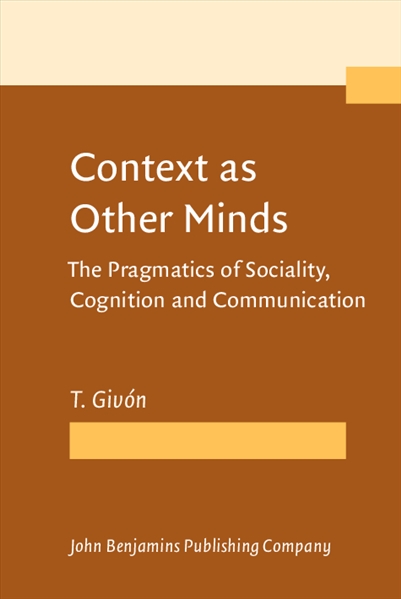
Givon's new book re-casts pragmatics, and most conspicuously the pragmatics of sociality and communication, in neuro-cognitive, bio-adaptive, evolutionary terms. The fact that context, the core notion of pragmatics, is a framing operation undertaken on ...
Givon's new book re-casts pragmatics, and most conspicuously the pragmatics of sociality and communication, in neuro-cognitive, bio-adaptive, evolutionary terms. The fact that context, the core notion of pragmatics, is a framing operation undertaken on the fly through judgements of relevance, has been well known since Aristotle, Kant and Peirce. But the context that is relevant to the pragmatics of sociality and communication is a highly specific mental operation ? the mental modeling of the interlocutor's current, rapidly shifting belief-and-intention states. The construed context of social interaction and communication is thus a mental representation of other minds. Following a condensed intellectual history of pragmatics, the book investigates the adaptive pragmatics of lexical-semantic categories ? the 1st-order framing of ?reality", what cognitive psychologists call ?semantic memory?. Utilizing the network model, the book then takes a fresh look at the adaptive underpinnings of metaphoric meaning. The core chapters of the book outline the re-interpretation of ?communicative context? as the systematic, on-line construction of mental models of the interlocutor's current, rapidly-shifting states of belief and intention. This grand theme is elaborated through examples from the grammar of referential coherence, verbal modalities and clause-chaining. In its final chapters, the book pushes pragmatics beyond its traditional bounds, surveying its interdisciplinary implications for philosophy of science, theory of personality, personality disorders and the calculus of social interaction.
Read Full Description >>
|
ISBN: 9789027232267 |
£97.00 |
